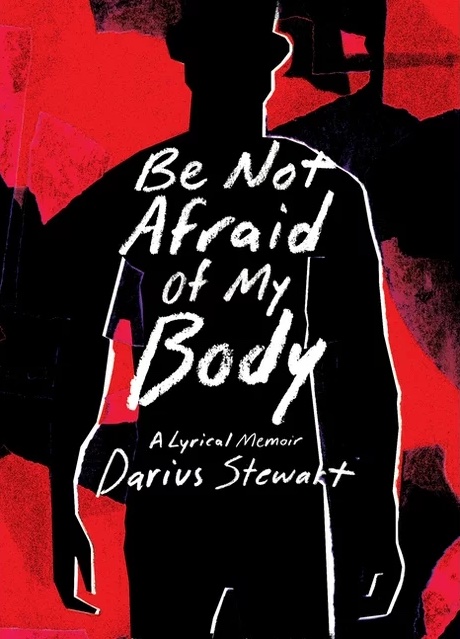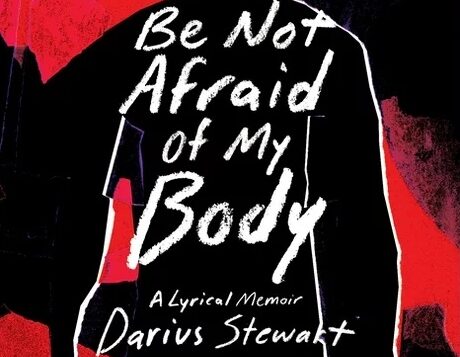 BE NOT AFRAID OF MY BODY: A Lyrical Memoir
BE NOT AFRAID OF MY BODY: A Lyrical Memoir
by Darius Stewart
Belt Publishing. 260 pages, $19.99
BE NOT AFRAID of My Body is a poetic recounting of a gay Black man’s life. In beautifully moving language, poet Darius Stewart explores his race, sexuality, class, and addictions, revealing both his gift for self-reflection and his penchant for self-destructive behavior.
Growing up in Knoxville, Tennessee, Stewart had a complicated relationship with his family. In the memoir, he is close to his mother, playing ball games and dancing with her in the living room, but he feels much less comfortable around his father. He remembers his father twice catching him “prancing around … wearing my sister’s fluffy, pink slippers.” This is his first sense that his desires toward men were something shameful and to be hidden. Stewart’s father also beats him when he’s caught stealing gum at a local convenience store.
As an adult, when Stewart tells his parents, in two separate conversations, that he is gay and HIV-positive, both times his father decrees that they will keep this in the family, that no one else must know. Father and son do share a taste for alcohol, though; his mother leaves the dining room table one night as they drink multiple chasers and shots. Fortunately, his mother is much more supportive, taking him to the emergency room after a bee sting and self-medication with vodka. However, when he tells her he has been tested for HIV, after he has come out to her but before his positive diagnosis, she responds with “You don’t have to like it.” He finds her matter-of-fact tone the most unsettling part of this conversation.
Accepting his sexuality proves challenging. As a child, he was interested in “unmanly” pursuits, so his classmates tried various ways to prove that he was gay. Even his best friend Maurice told him to “quit all that fucking Hula-Hoopin’ and shit.” After the classmates assumed the girl he spoke to through her screen door was a girlfriend, he told them he got her pregnant twice, but that she miscarried. He runs into her later as an adult and realizes there are people who, on account of his lies, believe she cannot get pregnant.
In college, he pursues straight men, with predictable complications. He remembers LeShaun, a married man he met online who visits Stewart when traveling for work. Their relationship is passionately sexy, but troubling. LaShaun asks: “Only faggots use condoms, right?” Still, Stewart holds out hope for a meaningful relationship, cooking a wonderful Italian meal for LeShaun’s next visit, only to be stood up. Later, he sleeps with his friend’s boyfriend, even traveling together. But Stewart finds him “grinding” on another man and leaves him.
His descriptions of addiction are harrowing. Waking up in the morning trembling from the need for alcohol, he debates between taking the twenty-minute walk to the closest liquor store or trying to get the remaining liquid from his empty bottles; he goes for the latter, acquiring enough to get him to work. He recounts seeing someone overdose at a friend’s barbeque, the man comically stumbling and absent-minded at first, then unresponsive in a chair, his lips turning blue.
The memoir is filled with poetry, with the title coming from a line of Walt Whitman’s. Chapters begin with lines from Essex Hemphill, a gay Black poet that Stewart discovered in a gay bookstore. In several chapters, Stewart uses the second person “you” to pull the reader even deeper into his story, to be part of the action.
Charles Green is a writer based in Annapolis, Maryland.






